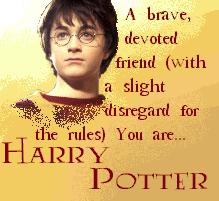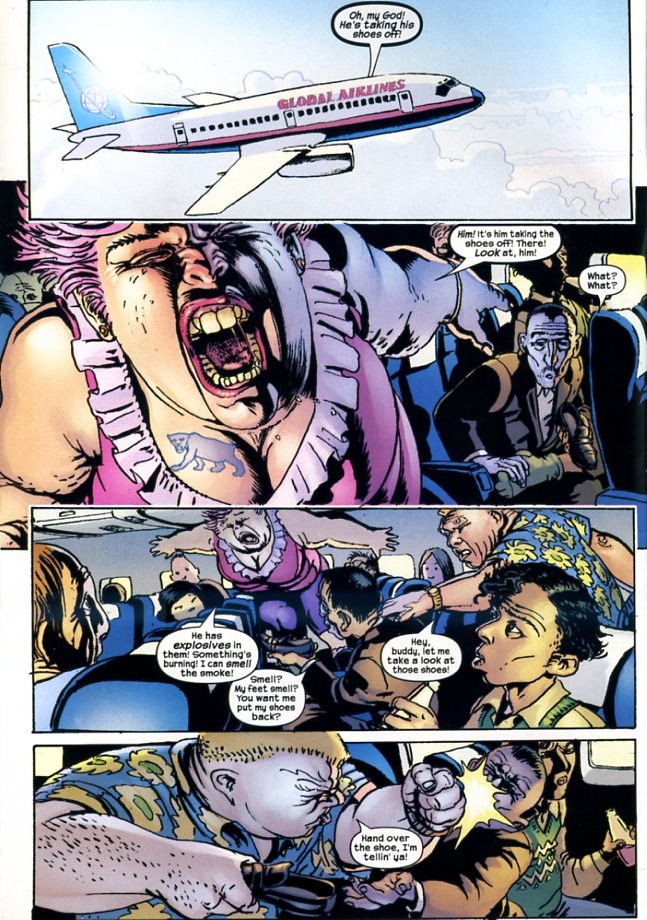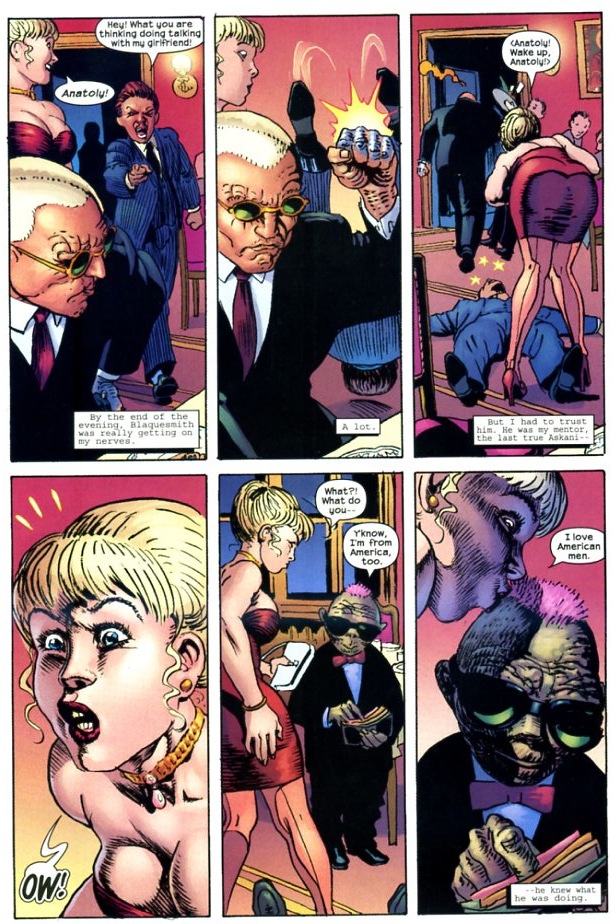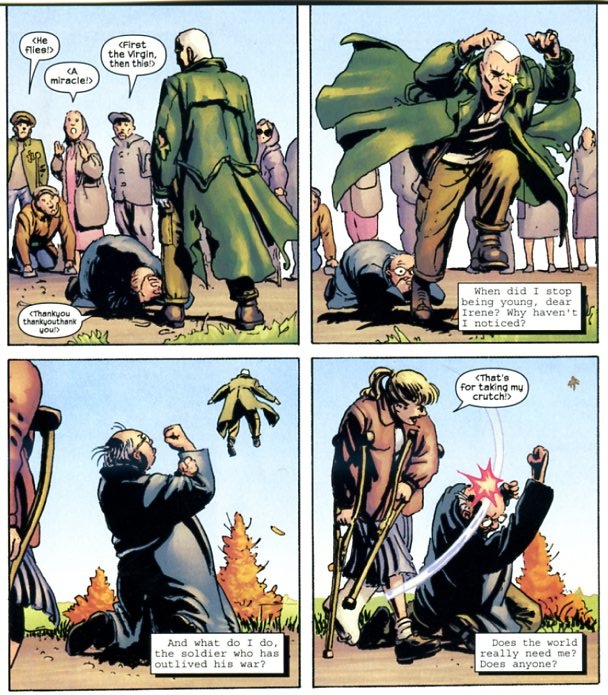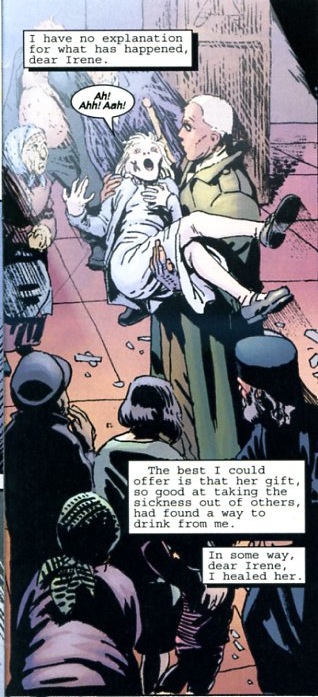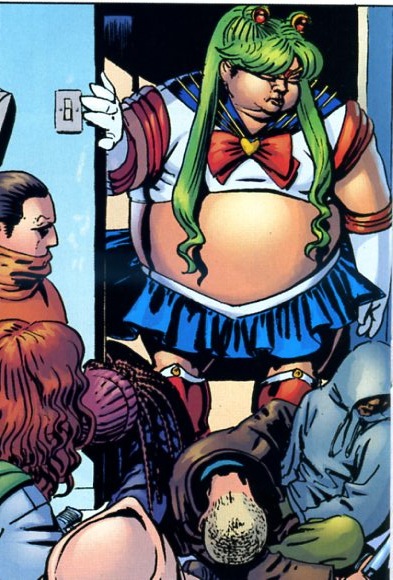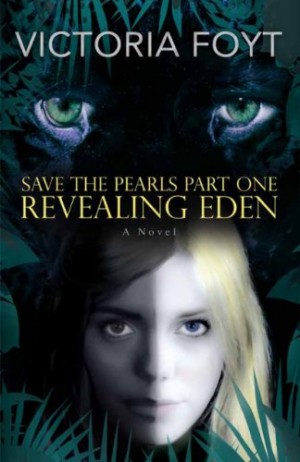 Whether in the American Revolution, Schindler’s List, or Star Wars, Americans have always had a deep and abiding love for tales of oppressed white people. In her new YA novel, Revealing Eden, Victoria Foyt takes that insight and runs with it as fast and as far as impressively insipid prose can take her. In the far future, solar radiation has become exponentially more dangerous, and those without the melanin to withstand it are second-class citizens. Our heroine, Eden, is white and, therefore, doomed to eugenic culling unless she can convince a black man to mate with her and give her dark-skinned babies. Soon she is embroiled with the fascinating Bramford, a black scientist who has had his DNA spliced with panther, eagle, and anaconda genes, turning him into an earthy, atavistic archetype. Luckily, in Foyt’s world, black people are in charge, so Bramford’s evolutionary descent has nothing, nothing, nothing to do with sexualized animalistic fantasies about black men. Shame on you for even thinking so.
Whether in the American Revolution, Schindler’s List, or Star Wars, Americans have always had a deep and abiding love for tales of oppressed white people. In her new YA novel, Revealing Eden, Victoria Foyt takes that insight and runs with it as fast and as far as impressively insipid prose can take her. In the far future, solar radiation has become exponentially more dangerous, and those without the melanin to withstand it are second-class citizens. Our heroine, Eden, is white and, therefore, doomed to eugenic culling unless she can convince a black man to mate with her and give her dark-skinned babies. Soon she is embroiled with the fascinating Bramford, a black scientist who has had his DNA spliced with panther, eagle, and anaconda genes, turning him into an earthy, atavistic archetype. Luckily, in Foyt’s world, black people are in charge, so Bramford’s evolutionary descent has nothing, nothing, nothing to do with sexualized animalistic fantasies about black men. Shame on you for even thinking so.
Revealing Eden is unusually crass in its take on race, but its general methodology has a longstanding pedigree in sci-fi and fantasy. You need only think of that ham-fisted Star Trek episode in which the aliens with faces that are white on the right side are oppressed by aliens with faces that are white on the left side, or the ham-fisted Next Generation episode in which the crew finds a planet where women rule over men.
Or, for a more recent example, try the film In Time, a parable in which fungible time has replaced money as the currency of choice. Thus, the rich live forever on horded time and the poor have to beg, borrow, steal and run for every second. The movie is clearly intended to be a comment on our crappy economy and growing inequality — but it’s a comment shorn of any mention of the ways in which that inequality continues to be bound up with race. There is, as far as I can remember, only one black character in the film; a long-suffering wife whose (white) husband is an alcoholic. The unfair distribution of time serves as a metaphor for real-world injustice — but does the metaphor highlight those real-world injustices, or does it deny them? Is it possible that the sci-fi setting is just a way to do a story about economic oppression without the inconvenience of having to feature black leads?
Similar questions arise in the three most successful YA series of recent memory: Harry Potter, the Hunger Games and Twilight. All make extensive use of metaphor to discuss racial prejudice — or to avoid discussing racial prejudice, as the case may be. In Harry Potter, (bad) wizards are prejudiced against muggles; in the Hunger Games, the people of the Capitol are prejudiced against the people of the Districts; in Twilight, vampires and werewolves are prejudiced against each other.
All these series come down squarely against discrimination, which is nice as far as it goes. That isn’t very far, however. For example, wizards in Harry Potter really are superior to muggles; no one really denies that. The only point at issue is whether muggles should be killed outright (as Voldemart believes) or whether they should be kept in perpetual ignorance for their own benefit (as the “good guys” believe.) Rudyard Kipling might approve, I suppose, but, to put it kindly, it’s hard to see this as a particularly insightful take on contemporary race relations. And I will avoid discussing the lovable house elf servants, who adore their own enslavement — a fantasy underclass entirely composed of Gunga Dins.
Hunger Games and Twilight are arguably less clumsy, but not by much. Suzanne Collins avoids discussing race by the simple expedient of not discussing it. Her main character, Katniss is possibly biracial, but it’s so downplayed in the book that Hollywood had no problem casting a white actress in the part for the film. In Twilight, there are many Native American characters, and the books deal forthrightly with prejudice directed against those characters. But all that prejudice is because the Native Americans are werewolves; there’s barely a hint that Native Americans who are not werewolves might occasionally be discriminated against. And, of course, Meyer, like Foyt, cheerfully deploys the stereotype of the animalistic, emotional, virile lesser races. Just because discrimination is bad doesn’t mean you can’t have some fun with it, right?
In all of these cases, the problem is that oppression is seen as a (simplistic) structure, rather than as a history. For Foyt, Rowling, et. al, you condemn racism by saying, “Hey! Racism is bad!” For none of them is there a sense of historical inequalities as a living and inescapable presence. Victoria Foyt’s main character, Eden, reads Emily Dickinson, but not Langston Hughes; nobody in Harry Potter compares Voldemort to Hitler; nobody in the Hunger Games has heard of Che. Oppression in all of these series has a now, but no yesterday. Sci-fi and fantasy, apparently, means a world without a past.
It doesn’t have to be that way. As just one counterexample, consider Octavia Butler’s Dawn, the first book of her Xenogenesis trilogy. The novel is set after a nuclear apocalypse. Most of the world has been destroyed, and earth’s few survivors have been rescued by a tentacled alien race known as the Oankali. The rescue is not entirely philanthropic, though. The Oankali are genetic manipulators; they want human beings for their genetic material. Or, to put it another way, they want to mate with our women — and also our men.
The main character in Dawn is an African-American woman named Lilith. You might think that in a future where most of humanity is dead and aliens have inherited the earth, race wouldn’t matter. But, as Butler shows, that would be naïve. Race matters a lot. It inflects other humans’ reactions to Lilith when they are asked to follow her leadership. It inflects the aliens themselves, who assume that Lilith will want to mate with one man because he is black. And it inflects Lilith’s reactions as well, both in her loyalty to her species against an imperial invader, and in her eventual acceptance of difference and, ultimately, of interspecies integration.
Butler doesn’t forswear analogy. The Oankali are in some ways very much like human imperialists — the European invaders conquering the New World. Similarly, mating with the Oankali is comparable to interracial relationships. But the metaphors don’t erase the past; instead they complicate it The imperialists are also saviors. Interracial marriage is both a betrayal of the race and the promise of a new and beautiful future. A future in which, not incidentally, the children of a black woman save humanity.
Dawn demonstrates that metaphor is not, or at least should not be, amnesia. Foyt wants to say that white is black without making any effort to think about either white or black. As a result, her world — and to a lesser extent, the worlds of Rowling, and Collins and Meyer — have an air of rather nervous blandness. Butler, alone in this company seems to realize that even in a different world, we can’t escape what has already happened in this one.

